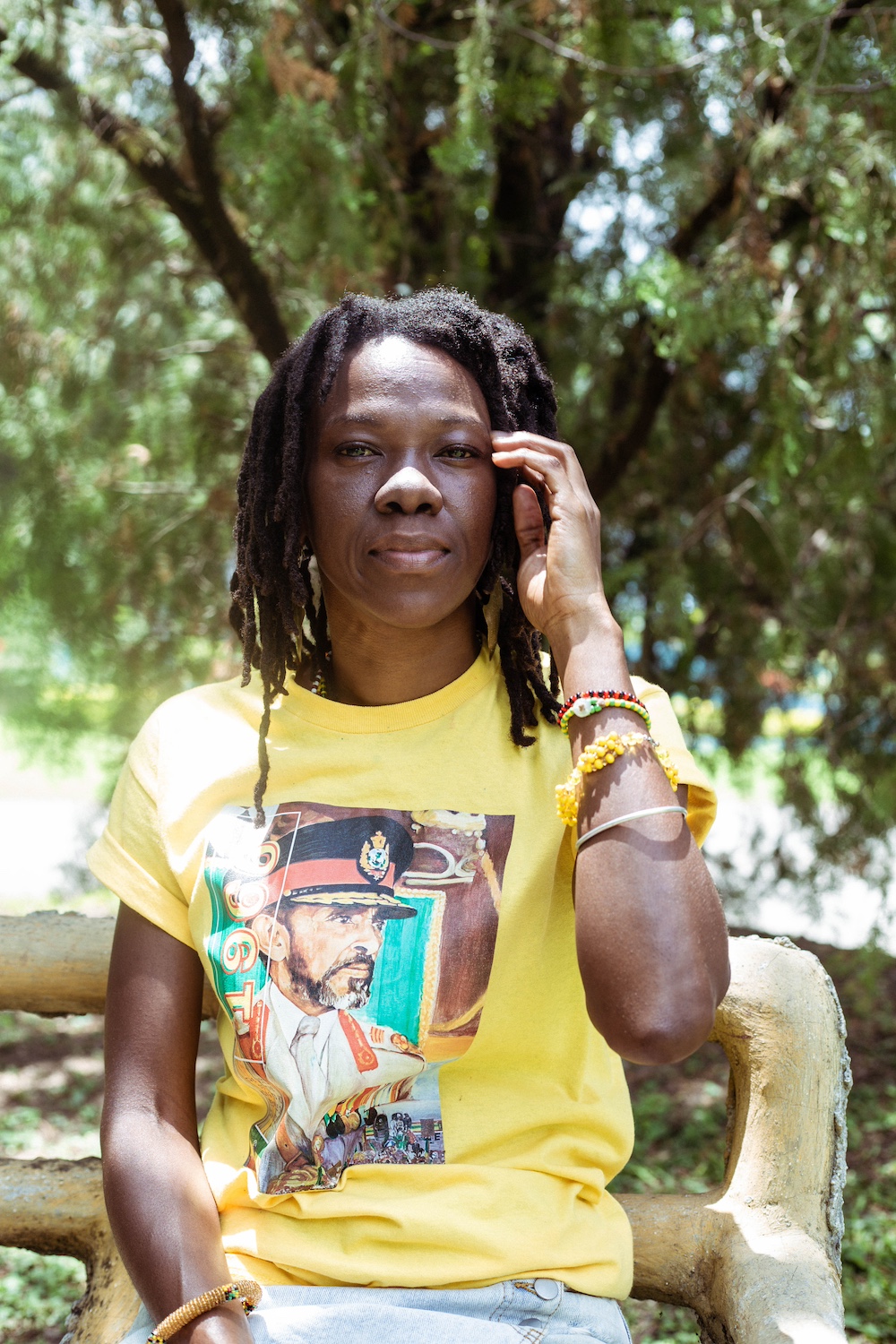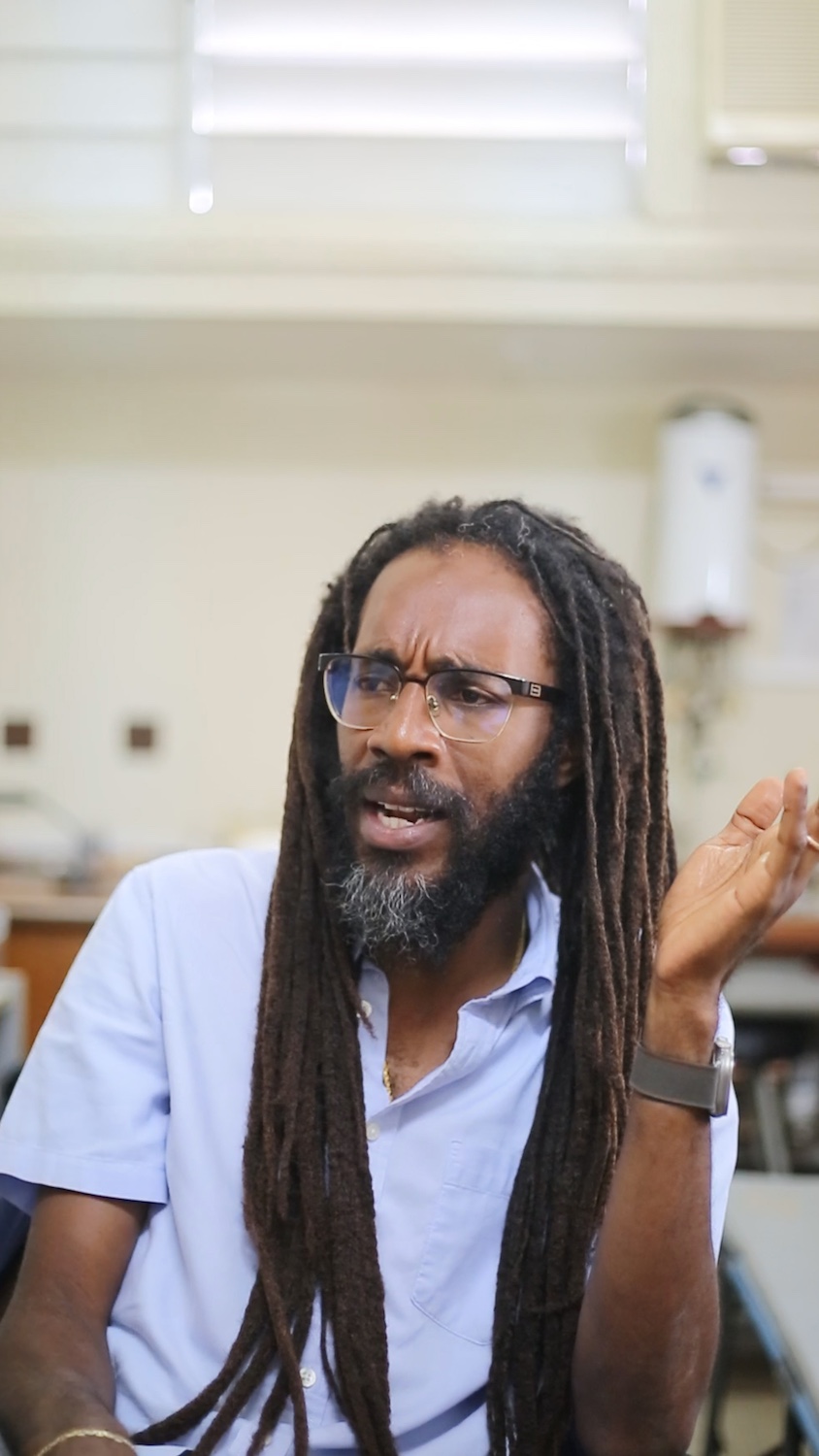
Local fruit for sale in Falmouth, Jamaica. (Image: Alison Toon/Adobe Stock)
Bob Marley is widely known for his music, his Rastafari faith and even some pro-environment sentiments. After all, climate change was already an issue in the seventies during the height of his career. What many people may not know is at the heart of Marley’s faith sat strong environment-friendly principles that still persist among the Rastafarians of Jamaica today.
An essential principle within their beliefs is the concept of Ital. The Ital diet is similar and often even conflated with the vegan diet, but it is not the same. So what does Ital mean? It can be considered differently by different people within the Rastafari faith.
“My interpretation of it is ‘natural,’” said Kareece Lawrence, a wellness event producer at the Rastafari Indigenous Village in Montego Bay, Jamaica. “One of the special things about Rastafari is the language. We’ve chosen to use words with more feeling and positive meaning. Which is how you get words like ‘I&I’ instead of ‘we’ and that is how you get words like ‘Ital’ instead of ‘natural.’”

Though there are different factions with different beliefs and lifestyle practices within Rastafari, there is some consistency with the Ital diet, Lawrence said. “Not having processed foods, animals and eating from the earth — preferably your own garden or a farmer you know and trust.”
The Ital diet is what’s known as a sustainable food system. A closed-looped way of eating that
allows the food source and the environment to replenish. Food system transformation is a great way to address health and the environment at once, according to research published in the Journal of Cleaner Production.
Food systems are estimated to be responsible for a third of human-caused greenhouse emissions. But it’s not just the emissions that contribute to climate change, it’s also the growing practices, said Machel Emanuel, life sciences lecturer and botanist at the University of the West Indies. Pesticide and fertilizer runoff can be absorbed deep into the earth, blighting the land, or washed into waterways, significantly disrupting the ecosystem there. Pesticides can also pose health risks to humans, particularly people with high levels of exposure like agricultural workers.
While it may not be possible to completely overturn the food processing industry in one fell
swoop, some key takeaways from the Rastafarian Ital diet could help inform and inspire a healthy transition.
Leonard Howell, who is widely regarded as the first Rastafarian, established a 500-acre commune in the hills of St Catherine. It was fully self-sufficient with over 4000 members eating and living off the land. This is where the germ of the Ital concept of a three-pronged approach to food system transformation began to thrive. For Howell, it was about creating economic independence by eating what they grew, but it was just as much about the health of the people and the environment that nourished them.
The principle of eating what you grow is a great place to start. You don’t need a 500-acre commune. A simple backyard garden or planters on a balcony would do.
Limiting the consumption of ultra-processed foods is another key principle that has application in any household. These foods have preservatives, flavorings, sugars and other substances added to them to enhance flavor and lengthen shelf life. Looking into organic alternatives for some of your favorite ultra-processed foods is an excellent first step. Developing a relationship with a farmer’s market in your area could also be a good way to support organic agriculture and fill in areas where your backyard garden may fall short. Support for these markets is already growing, Emanuel said.

“We see the change taking place,” Emanuel said. “People are becoming more conscious of where the food comes from, who is actually growing it, and what sort of inputs are being used. So you’ll see a lot of farmer’s markets being set up around the country. We see consumers are willing to patronize agricultural products where they are closer to the people growing them and are able to have a certain amount of input in the way things are done.”
But food processing isn’t necessarily the enemy. Not all processed foods are ultra-processed, and there are ways to do it without risking the viability of the environment. A project from the Norway-based food research institute Nofima, for example, tested new technology with the potential to replace autoclaves — a machine used to ensure food safety and extend shelf life that requires a lot of water and energy. These new sustainable ways to process food are slowly making their way into the industry.

Gladstone H Taylor is an author/journalist living and operating out of the creative industries of Kingston, Jamaica. He has been writing professionally for over eight years. He’s reported on the environment, culture, music, film, and tech through platforms such as Mongabay, The Fader, Sole DxB, Bandcamp, The Face Magazine, RollingStone, Afropunk, Syfy Wire, and PopDust, to name a few. He is a member of Covering Climate Now and Uproot Project.














